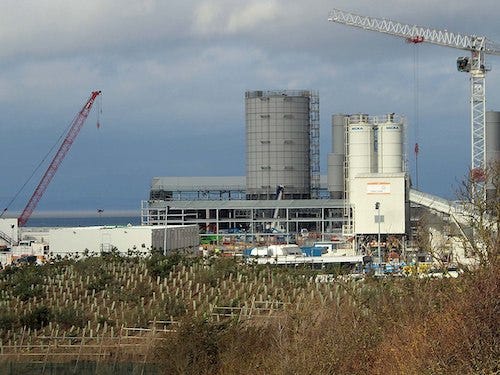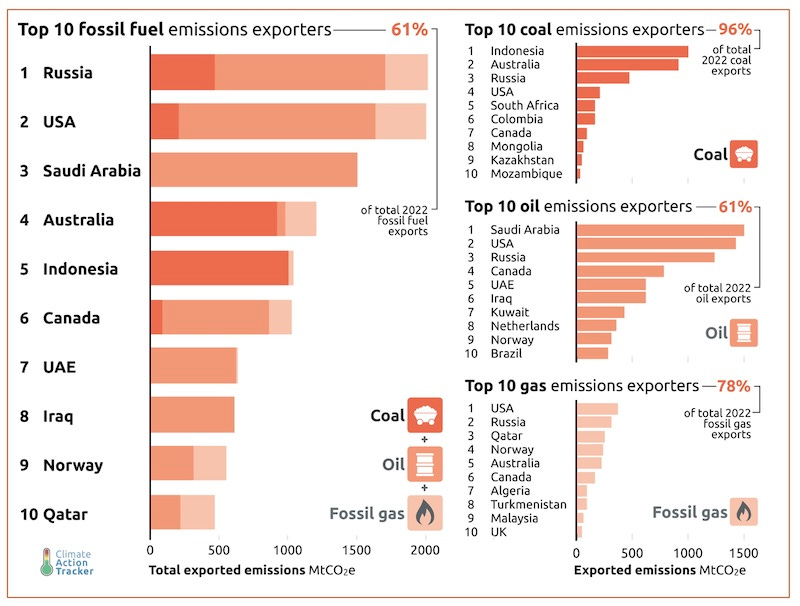‘Great British Nuclear Fantasy’ Mirrors SMR Hype in Canada
While Canada touts small modular nuclear reactors and U.S. investors run for cover, the United Kingdom will waste billions watching the industry slowly crumble, writes veteran journalist Paul Brown.

According to the United Kingdom’s Labour government, the country is forging ahead with large nuclear stations and a competition to build a new generation of small modular reactors.
Great British Nuclear, a special organization created by the last Conservative administration and continued by Labour, is charged with finding sites for new large reactors and getting a production line running to produce the best small modular reactors. These will be mass produced in as yet non-existent factories.
The state of play in the UK mirrors the unbridled hype in Canada, with provinces like Ontario putting nuclear ahead of more affordable, more genuinely green energy options and the industry brazenly hiring departing provincial cabinet ministers to guide its lobbying efforts. That’s in spite of independent analysts declaring SMRs a “Hail Mary” unlikely to succeed and pointing out that, in contrast to the private power market in the U.S., Canada’s mostly public utilities make it easier for SMR proponents to avoid transparency on costs—and let taxpayers/ratepayers assume the risk if things go wrong.
The UK government is cheered on by both the country’s trade unions and the right-wing press which otherwise spends much time attacking the renewables industry and pouring scorn on Labour’s drive to reach net zero.
However, two distinguished academics who have much spent of their careers studying the electricity industry have produced a comprehensive study that says this latest nuclear “renaissance” won’t happen. Better for the country to cut its losses now and cancel the program than continue to waste billions more pounds letting the nuclear industry crumble slowly, they say.
Prof. Stephen Thomas, emeritus professor of energy policy at Greenwich University in London and Prof. Andy Blowers, emeritus professor of social studies at the Open University, pull no punches. Their report is titled: “It is time to expose the Great British Nuclear Fantasy once and for all.”
Currently, the French electricity giant EDF is building two 1,600-megawatt European pressurized water reactors at Hinkley Point in Somerset. The project is 13 years later than EDF’s original schedule, and the cost has escalated from £18 billion when contracts were signed in 2016 to £35 billion in 2024 (and that is in 2015 prices). The first of the two reactor’s start-up date has this year been postponed until 2030 at the earliest.
With this flagship project costing so much, EDF, already deeply in debt, has declined to finance the second planned twin reactors of the same design at Sizewell C in Suffolk. Site preparation work for this station is under way and the British government has sunk £8 billion into the project already without yet making a final investment decision, even though it was promised earlier this year. This is because the government cannot yet find the private capital required to build the reactors. The two professors say the government should cut its losses now and pull the plug on the project.
Even more pointless according to the two academics is the small modular reactor competition which has four companies, Rolls Royce, Westinghouse, Holtec, and GE Hitachi, putting forward designs. All have the same basic idea, which is to build the reactors in factories and assemble them at sites all over Britain. This, they claim, would be more efficient than building large reactors, and therefore produce cheaper electricity.
The government has said it is prepared to spend £20 billion through 2038 to get these up and running. But the report points out that none of the designs have been completed, let alone tested, so there is no evidence that the claims for them can be justified. They point out nuclear power has “a long history of over-promising and not delivering.”
“Rigorous regulatory and planning processes are essential but are necessarily time-consuming, expensive, and place significant hurdles in the way of an accelerated nuclear program,” the report states. “Some projects may fail to gain site licences or planning permission and all will face substantial delays to the commencement of development.”
The report also points to climate change as a potential problem, since nearly all the potential sites are on coastlines vulnerable to sea level rise and storm surges.
“Despite the sound and fury, the Great British Nuclear project is bound to fail,” Blowers and Thomas conclude.
“No amount of political commitment can overcome the lack of investors, the absence of credible builders and operators, or available technologies, let alone secure regulatory assessment and approval,” they write. “Moreover, in an era of climate change, there will be few potentially suitable sites to host new nuclear power stations for indefinite, indeed unknowable, operating, decommissioning, and waste management lifetimes.”
The two authors acknowledge that “abandoning Sizewell C and the SMR competition will lead to howls of anguish from interest groups such as the nuclear industry and trade unions with a strong presence in the sector. It will also require compensation payments to be made to organizations affected. However, the scale of these payments will be tiny in comparison with the cost of not abandoning them.”
So “it is our hope that sanity and rationality may prevail and lead to a future energy policy shorn of the burden of new nuclear and on a pathway to sustainable energy in the pursuit of net zero.”
Chart of the Week

Northvolt Bankruptcy Won’t Affect Quebec Plant, But Pension Plans Could Take a Hit
Vancouver Votes to Reinstate Gas Ban for New Developments
‘Renewables Campus’ in Newfoundland Pivots from Hydrogen Exports to Data Centres
Harper Named AIMCo Chair Amid Controversial Leadership Overhaul
Quebec to Ban Gas in All Buildings by 2040
Natural Forest Regeneration Reverses Drought, Helps Rebuild Communities in Ethiopia
Climate Promises, Future Prosperity Depend on Closing the Investment Gap
Ottawa to Unveil High-Speed Rail Bid For Toronto–Quebec City Corridor
China Gains Climate Investment Edge as Trump Undercuts U.S. Influence
China's cut to coal power share is a rare but key climate win (Reuters)
Oil Groups Announce Priorities for Incoming Trump Administration (Rigzone)
Opinion: Why you should pay attention to this Ontario court ruling on a climate change case (Globe and Mail)
Proposed central Alberta wind project met with opposition from residents, conservation group (Canadian Broadcasting Corporation)
Nuclear hype ignores high cost, long timelines (Institute for Energy Economics and Financial Analysis)
U.S. Regulator approves MISO, SPP transmission plan expected to spur 29 GW of renewables (Utility Dive)
Green industrial projects are stuck in limbo (Canary Media)
HSBC sustainability chief quits amid backlash at green rules (The Telegraph)
Tallinn commits to 15-minute city principles for 2025 (Smart Cities World)
Forget snowbirds. These sunbirds are flocking north. (Yale Climate Connections)
How a change in rice farming unexpectedly made India’s air so much worse (Washington Post)
Sovereign Debt Presents Green Investors With a Predicament (Bloomberg)







Sue has got it spot on. A lot of support for nuclear power comes from the fossil fuel lobby. The longer nuclear takes to build and the more expensive it is the better as far as they are concerned. It allows fossil fuels to the burned for much longer and makes gas look competitive when in reality wind, solar combined with pump storage and batteries is a much quicker and cheaper option. The people who advocate for nuclear power are either badly misinformed, in love with the idea without looking at the facts, or cynically pushing a technology which has clearly failed to live up to its promise - and promises.
Not to gang up (well, only as appropriate), but here's a comment from Ralph Torrie, who's been following these issues deeply since the 1970s...
One can't help note the irony when nuclear supporters complain about "dogmatic" criticisms given the long history of dogmatic assertions in the pro-nuclear narrative. Remember "too cheap to metre"? "Atoms for Peace"? "The waste presents a public relations problem, not a technical obstacle"? As for it being "the only sensible solution", one thinks of the clearly nonsensical premise on which nuclear safety is built, i.e. that no consequence is too high if the probability is low enough.